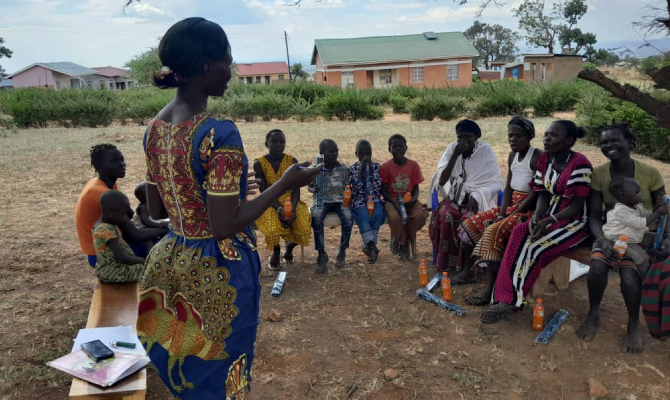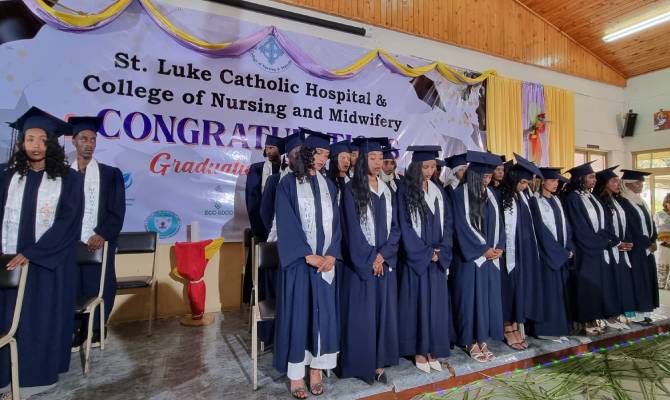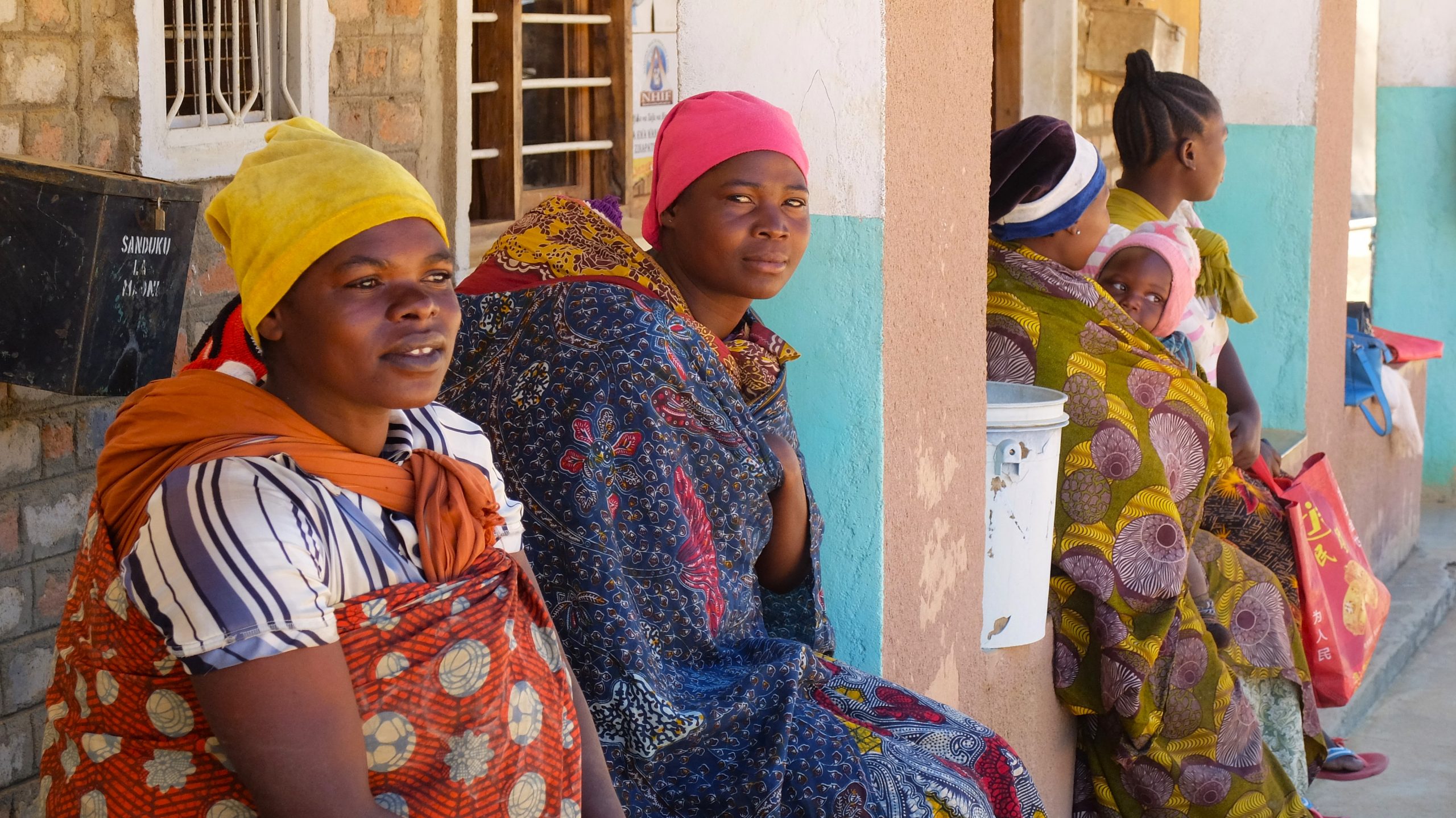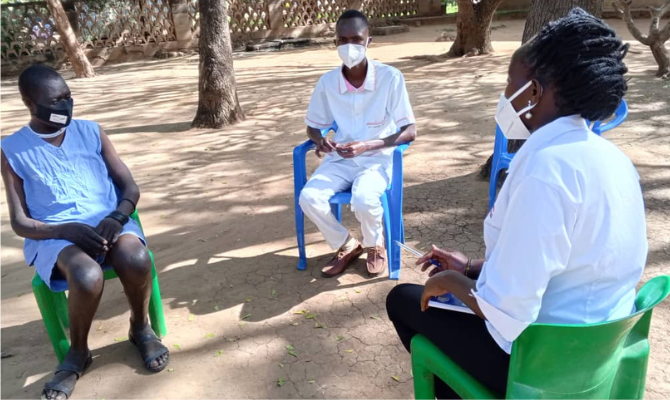Restoring dignity to those who have experienced traumatic life events and, at the same time, fostering resilience and building pathways towards a brighter future. This is the story of Esther Amena, a 36-year-old South Sudanese refugee living in the Imvepi refugee and internally displaced persons camp in Terego District, Uganda, with 5 children and two other dependents. Her fragile mental health condition began to manifest in 2006 in South Sudan and, upon arriving in Uganda in 2007, she was abandoned by her husband who feared she might transmit her mental health issues to their children. “I had mental health problems even in South Sudan, but I had recovered. The relapse occurred when all six of my brothers were massacred during the tribal war,” Esther said.
It was only in the Imvepi camp that Esther began to feel better, when she had the opportunity to have access to mental health support services promoted by the “Inclusive Emergency Initiative to Strengthen Health Services and Hygiene Practices in Refugee and Host Communities in West Nile, Uganda,” a project funded by the Italian Agency for Development Cooperation and implemented by CUAMM in collaboration with CBM International and the local NGO Community Empowerment for Rural Development (Ceford).
“The nurse told me about the initiative that Cuamm was implementing to strengthen health services and hygiene practices in refugee and host communities in West Nile, emphasizing the attention to vulnerable groups and also people with mental health problems,” Esther explained.
Thanks to training on community-based mental health management, Esther has become a reference and support figure for other members of the community, particularly those in fragile mental health situations. “Today, with the knowledge I have acquired, I can raise awareness among other people, even sharing my own story. I do home visits and follow up with people to ensure they take their medication. I refer the most serious cases to health facilities for support. Thanks also to the salary I receive, I can provide for my family. I would like to have a certificate to demonstrate my training and the work I have done with CUAMM so that, when we return to South Sudan, I can provide mental support to people affected by the war,” she concluded.
Launched in September 2023, the intervention involves both the refugee population in the area and the host population, contributing to the improvement of health and hygiene services, with particular attention to the most vulnerable groups: women, children, and people with disabilities. Since the beginning of the project, 2,777 births have been assisted, 92 referrals for obstetric complications, 90 surgical cases assisted, and 1,257 patients have undergone surgery for fractures and musculoskeletal conditions. Furthermore, the initiative pays particular attention to people like Esther who are dealing with mental health problems: to date, 307 patients have been supported.
This commitment would not be possible without the active participation of 277 trained community health workers, who also provide psychosocial support, and the communities themselves. Over these months, 14,585 people have been reached through outreach and sensitization activities, also contributing to achieving a vaccination coverage of over 100% for children under one year of age and significantly reducing malaria mortality to 0.08% in the area.
“We want this project to be transformative. The commitment is not limited to improving health and hygiene, but aims to restore dignity, build resilience, and create pathways towards a healthier future for refugee and host communities in West Nile,” concluded Joseph Katetemera, Cuamm technical consultant in West Nile.





